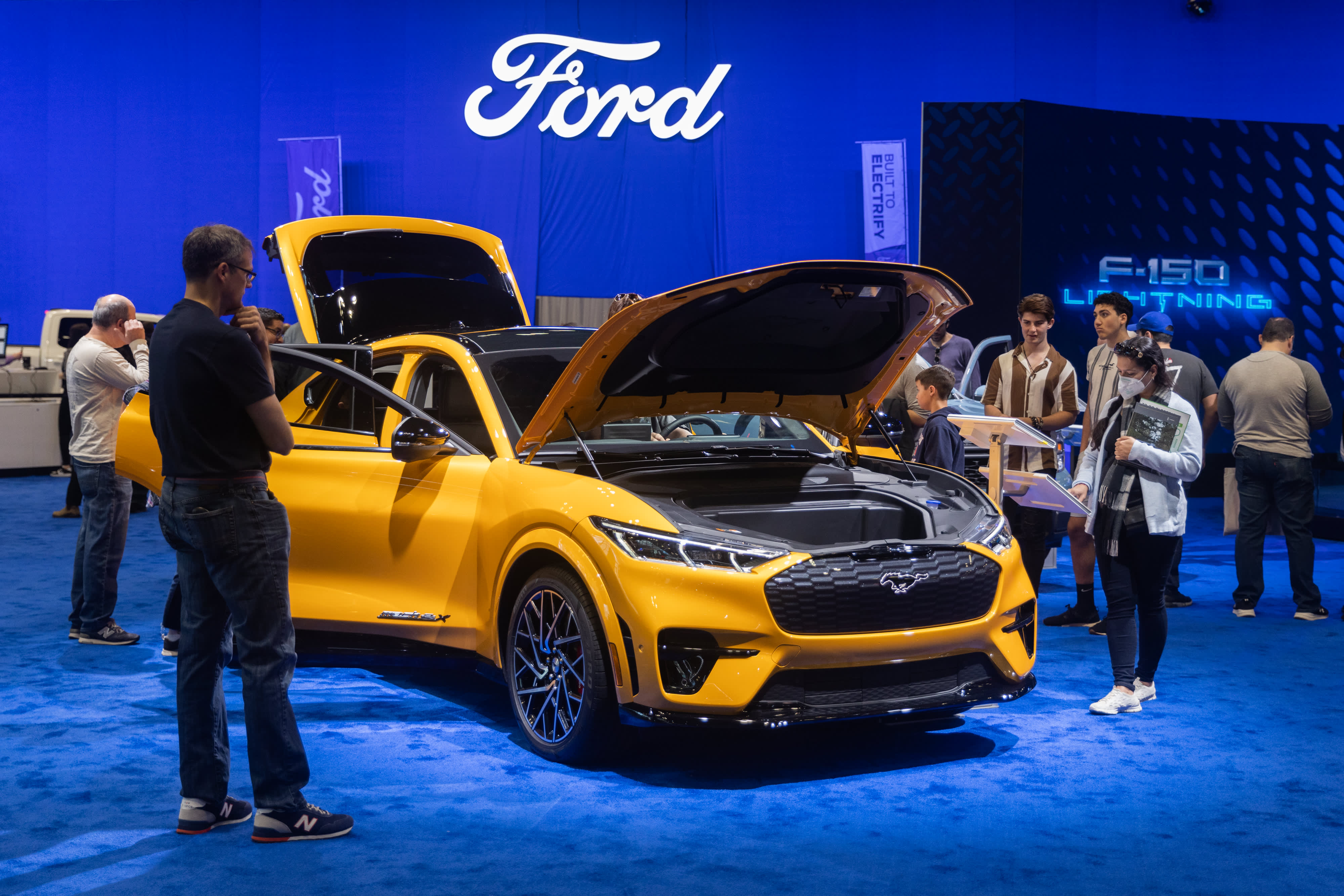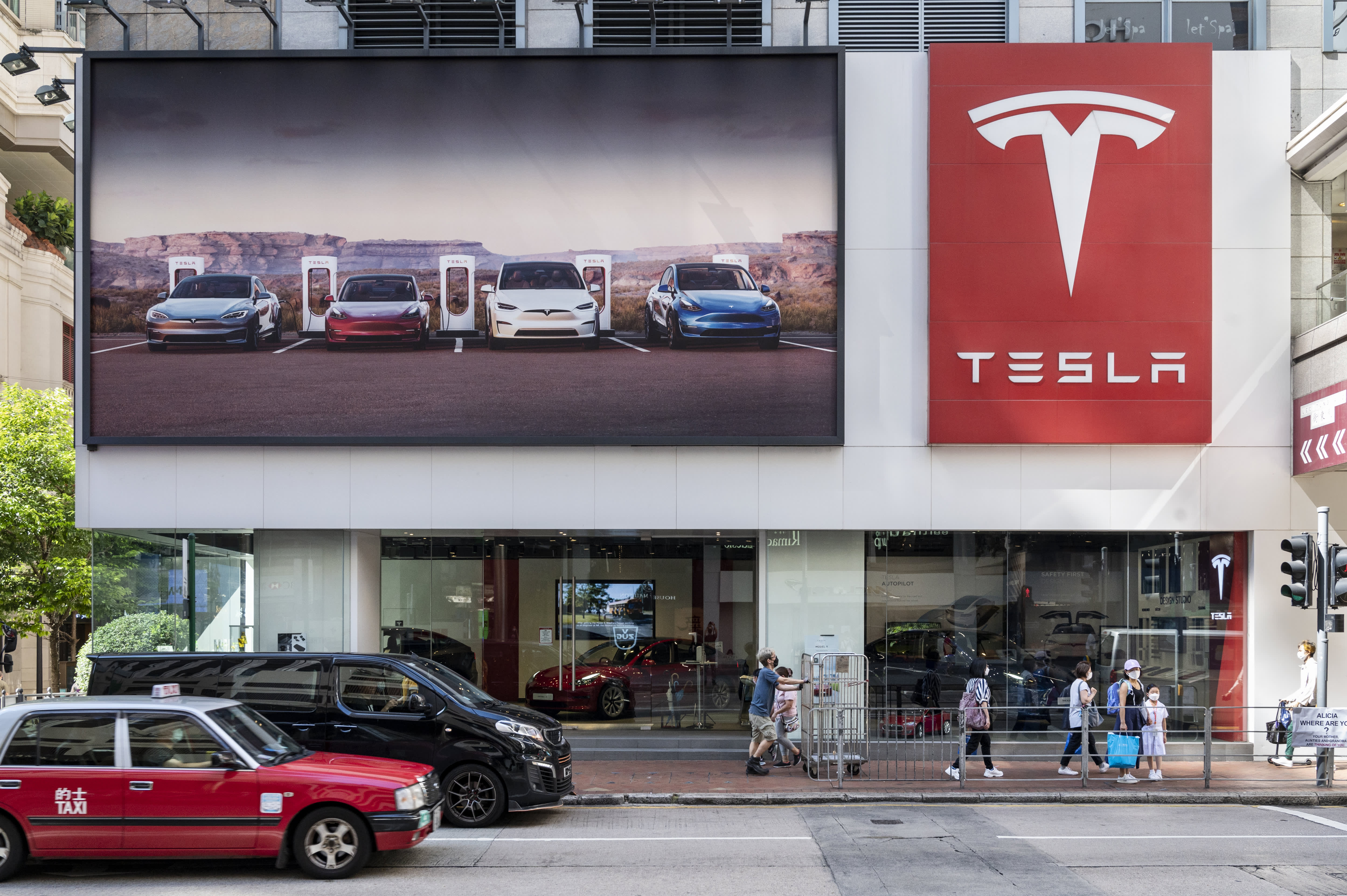- Quick Look at the 2020 Volkswagen Atlas Cross Sport | MotorTrend - March 13, 2024
- BMW Design – 2009 BMW Z4 – 2009 Detroit Auto Show - March 11, 2024
- Top 10 Car Features Women Love - October 7, 2023
DETROIT – When General Motors launched the GMC Hummer EV in 2021, the automaker touted it as a new benchmark for its vehicle development time, but the production and sales pace of the truck have been anything but that.
The Detroit automaker only sold 854 of the vehicles in 2022. That’s an average of 17 trucks per week, including some downtime at the production plant. It’s a far cry from a traditional production ramp-up over several months, albeit it an all-new vehicle.
But it’s not just the Detroit-produced Hummer. It’s all of GM’s new EVs in the U.S., as the company slowly ramps up production of vehicles on its new “Ultium” EV platform.
GM executives said Tuesday they don’t expect significant production increases of the new EVs until the second half of this year – making the Hummer a nearly two-year ramp-up and causing production of the new Cadillac Lyriq to be painfully slow at a plant in Tennessee.
The problem? Cell production at GM’s new or under-construction U.S. plants, according to executives.
“We’ll be ramping up EV volumes throughout the year,” GM finance chief Paul Jacobson told reporters Tuesday morning after releasing fourth-quarter results. “We’ll obviously be at a significantly higher run rate at the back half of this year, other than what we’re starting and it’s really all indexed to cell capacity.”
In October, GM CEO Mary Barra pushed back plans for GM to collectively produce 400,000 EVs in North America by six months due to the inability to ramp up battery production as quickly as the company expected.
Doug Betts, an industry veteran and J.D. Power president of automotive, said a normal ramp-up – from the start or production to hitting targeted units – is about 30 days to 60 days. However, that can vary by product, depending on the amount of new parts and procedures for employees.
Barring any supply chain problems, Betts said electric vehicles should be easier and faster to build than traditional vehicles with internal combustion engines for an experienced automaker.
EVs coming
Barra said Tuesday that the ramp-up remains “on track” for the Ohio facility in addition to construction completion of similar battery facilities in Tennessee later this year and Michigan in 2024. She said the Ohio plant should be at full production capacity around the end of this year, adding about 20% per quarter.
“This is the breakout year for the Ultium platform,” Barra told investors Tuesday, adding the Tennessee plant should be able to scale more quickly. “These plants will help us meet pent-up demand … and it keeps our other EV launches on track.”
GM said Monday it launched production of the GMC Hummer SUV EV at a plant in Detroit. That vehicle is expected to be followed by an electric Chevrolet Silverado work truck by midyear and electric versions of the Chevrolet Blazer and Equinox during the second half of 2023.
GM argues it’s planning for the mid- to long-term and is “well positioned” with its Ultium EVs, including securing all the raw materials needed for North American production capacity of 1 million units by 2025. The company said Tuesday that it plans to invest $650 million in Lithium Americas in a bid to gain more access to lithium, a key component in EV batteries.
This has been carefully cadenced,” said Stephanie Brinley, principal automotive analyst at S&P Global Mobility, also signaling supply chain problems across the auto industry. “In the long-run, they are going to be better off being careful about it. … They’re still in a good position to lead over time.”
But others such as Hyundai Motor and Ford Motor have been ratcheting up production of EVs. Industry leader Tesla also targets to produce 2 million electric vehicles globally this year.
Ford, which ranked second in EV sales in the U.S. last year, expects to increase production of its electric Ford F-150 Lightning. GM’s Detroit rival was able to ramp-up production of the electric pickup to sell more than 15,600 of the vehicles since the truck went on sale in May.
Following recent price cuts by Tesla and Ford on its Mustang Mach-E crossover, Jacobson said the company feels its EVs “are well positioned” regarding pricing. GM’s EVs currently range from the mid-$20,000 Chevrolet Bolt models to the more than $100,000 Hummer vehicles.
GM expects to ramp-up production of the Bolt models, which use older battery technology, to 70,000 vehicles this year, GM has said.
Different batteries?
To assist in scaling its EVs, GM could potentially change the packaging of its batteries to cylinder cells instead of pouches.
Barra declined to comment on media reports about such a change, or the addition of the cylinder cells, to its plans. She said the company has been evaluating different battery form factors and it designed the Ultium platform to be agnostic of current battery shapes.
“We can look to what is going to be the right battery for the specific vehicle from a performance perspective, so we have that complete flexibility,” Barra said.
She said GM currently uses cylinder cells for EVs in China, including the Lyriq. Dealers there delivered about 2,400 vehicles from September through December, she said. That compares to 122 Lyriq EVs with pouch cells in the U.S.
It’s unclear whether switching to cylinder cells would increase production in the U.S., as China’s battery plant production is farther along than in America.
A GM spokesman declined to comment on whether a fourth announced battery plant in the U.S. could produce cylinder cells. Talks between GM and LG Energy Solution recently stalled, and the automaker is seeking another partner.





